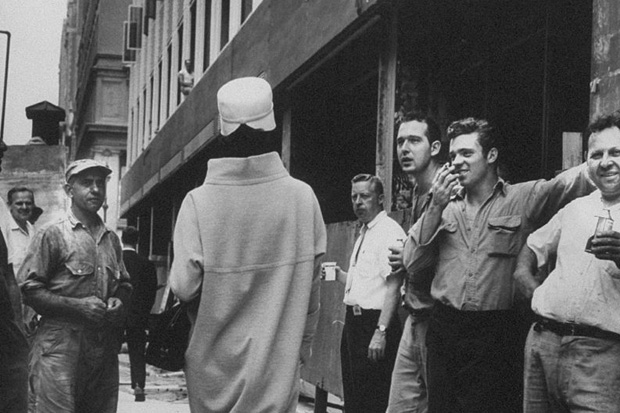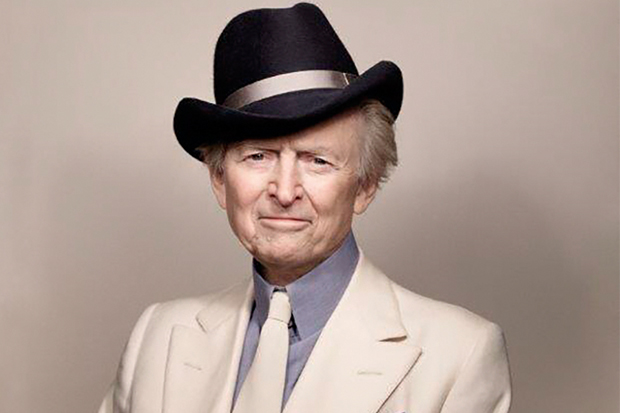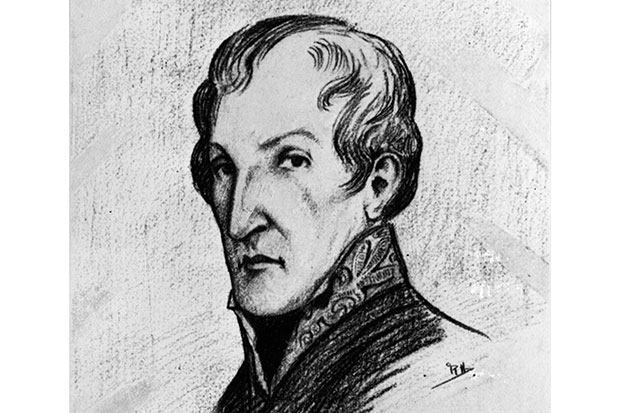Centuries before their footballers learned giant-slaying ways, Icelanders knew how to startle the world with tall stories. In the moonscape that birthed Sagas and Eddas, little grew but epic tales. When this novel’s protagonist, the troubled poet-turned-publisher Ari, announces in an interview that he has given up authorship, his aunt Elin sends him a heartbroken letter. To see ‘one of our own’ write books, she writes, ‘made us feel almost as if everything had meaning’. Especially for a restless kid from the black lava fields of Keflavik, ‘this peculiar town situated behind the world’, where nothing happens and ‘it’s just work, just fish, the Yanks and the wind’.
Those Yanks — and their military encampment — depart as the Cold War thaws. The US base, both curse and cornucopia, mutates into the sleek airport, showcase for ‘a modern nation’ where weekenders in search of Nordic cool now land. The fish-processing factory which employed young Ari (and Jón Kalman Stefánsson, by the way) closes as crooked deals with ‘sea barons’ leave Keflavik marooned as a ‘quota-free’ town. That leaves the sea (‘To be at sea is to be alive,’ insists one of Ari’s silver-tongued forebears), the wind — and the stories that blow through the novel.
Set in Iceland’s west fjords around 1900, Stefánsson’s glorious trilogy — Heaven and Hell, The Sorrow of Angels, The Heart of Man — proclaimed a talent not only for gale-force lyricism but the delicate carto-graphy of a hero’s mind. This novel, which will have a sequel, begins today with Ari — middle-aged, divorced, disconsolate — returning from Denmark to visit his sick father. Soon it dives back both to Ari’s late-teenage years in Keflavik and to his grandparents’ harsh lives as fisherfolk on the eastern coast. Around these storm-battered shores, Stefánsson’s prose — translated with craggy eloquence by Philip Roughton — rolls and surges with oceanic splendour. ‘God,’ as the literary fisherman Tryggvi puts it, ‘composes magnificent poems.’
As the book moves between the panels of its triptych, the Iceland of Ari’s clan loses its loneliness — and, arguably, its grandeur. Though written with panache, sections set in 1980 and the present drift towards the sea-lanes of rhapsodic introspection now commanded by Karl Ove Knausgaard, the admiral of angst. That ‘modern nation’ breeds modern people, with their Beatles obsessions, frayed marriages, laptops and neuroses. Yet even amid a standard-issue mid-life crisis, Ari feels the tug of stronger yarns. His castaway state channels the salt-scoured wisdom of the old story-tellers: that ‘Humanity is ephemeral, our lives birds’ songs, seagulls’ cries, then silence.’
The post Gale-force lyricism appeared first on The Spectator.
Got something to add? Join the discussion and comment below.
Get 10 issues for just $10
Subscribe to The Spectator Australia today for the next 10 magazine issues, plus full online access, for just $10.
You might disagree with half of it, but you’ll enjoy reading all of it. Try your first month for free, then just $2 a week for the remainder of your first year.














Comments
Don't miss out
Join the conversation with other Spectator Australia readers. Subscribe to leave a comment.
SUBSCRIBEAlready a subscriber? Log in